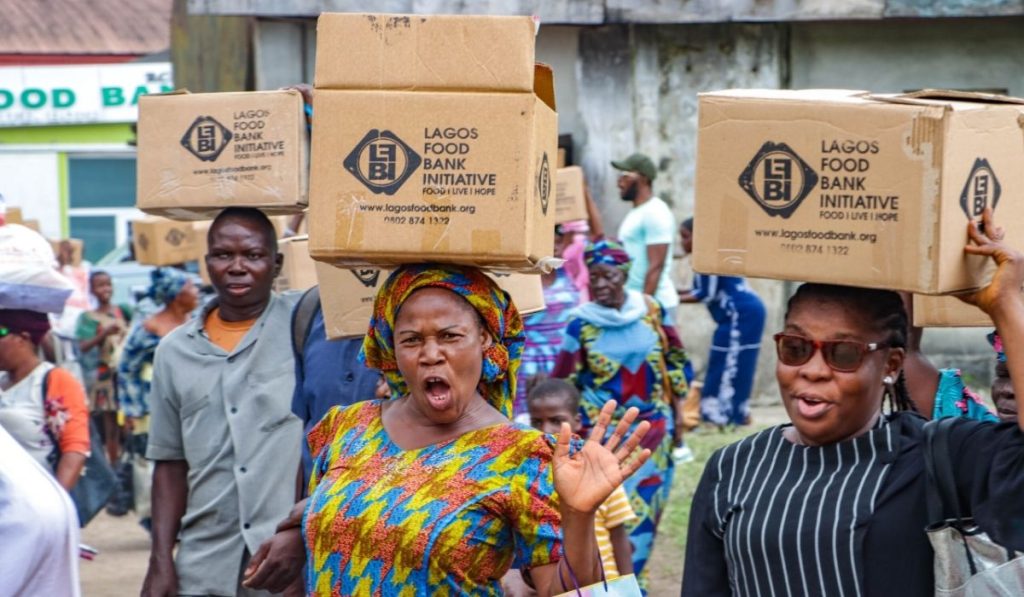
In a significant move to combat food insecurity in Nigeria, the Lagos Food Bank Initiative (LFBI) has unveiled a state-of-the-art warehouse to enhance its storage capacity and distribution efforts. This non-profit organization, dedicated to alleviating hunger and malnutrition, aims to scale its impact and reach more vulnerable communities with this strategic expansion.
At the commissioning ceremony, Lagos State Governor Babajide Sanwo-Olu, represented by Abisola Olusanya, Commissioner for Agriculture and Food Systems, described the warehouse launch as a transformative milestone. He emphasized that the facility not only strengthens LFBI’s ability to serve those in need but also underscores Lagos as a city committed to compassion and community service.
“This new warehouse is a testament to our shared commitment to fighting hunger,” Sanwo-Olu said. “Lagos is not just a hub of commerce and industry but also a beacon of hope and humanitarian service.”
Michael Sunbola, Founder and Executive Director of Lagos Food Bank Initiative LFBI, highlighted the significance of the new facility, stating that it represents growth, innovation, and the organization’s unwavering dedication to fighting hunger in Nigeria.
“This warehouse is more than just a building—it symbolizes our mission to ensure that no one goes to bed hungry,” Sunbola stated. “We will continue to push forward through innovation, collaboration, and unwavering commitment to our cause.”
Read also: Lagos Food Bank Initiative Donates Relief Materials to Beneficiaries
LFBI has been at the forefront of hunger relief efforts in Lagos, Nigeria’s commercial hub, for years. The organization has reached approximately three million households across 170 communities, with the support of over 30,000 volunteers and food donations from both local and international partners.
With the launch of the modern warehouse, LFBI can now scale its operations to distribute more nutritious meals to underserved communities. The facility also provides an opportunity to collaborate with local food producers and suppliers to rescue surplus food, reducing waste and ensuring that edible food does not end up in landfills.
Sunbola noted that the warehouse was made possible with support from the Global Food banking Network, PIMCO, and the Rockefeller Foundation. It will serve as a crucial resource for the organization’s growing network of partner NGOs, community outreach programs, and individuals in dire need of food assistance.
Citing data from the World Bank, he pointed out that an estimated 129 million Nigerians live in poverty, making food insecurity a pressing concern. The new warehouse is expected to play a pivotal role in addressing this challenge by cushioning the impact of surging food prices and ensuring more families receive the support they desperately need.
As LFBI continues to expand its reach, the organization remains committed to building a hunger-free Nigeria, one meal at a time.
[give_form id="20698"]

